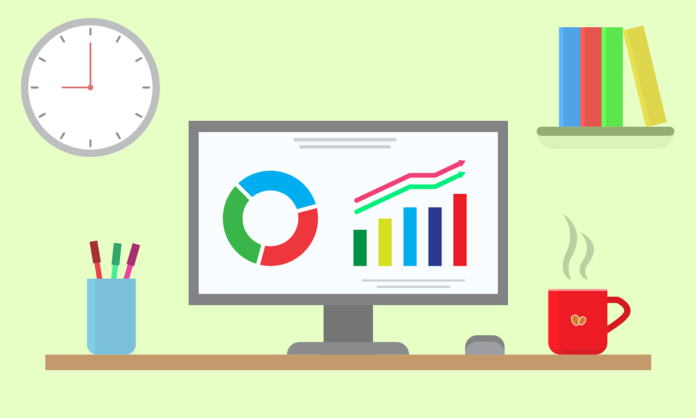Last Updated on March 2, 2025 by Bisma Sehar
https://pixabay.com/vectors/office-work-job-desktop-business-7267487
In today’s competitive digital landscape, more often than not, data enlightens many strategies and decision-making actions made by marketers. The ability to track, analyze, and interpret this data is what separates successful from less-than-effective digital marketing campaigns. Reporting has been a core part in this process, offering actionable insights to businesses to optimize their marketing efforts for better engagement and, eventually, for achieving goals. Without thorough and accurate reporting, one risks making uninformed decisions or worse – entrenched assumptions, which can also be too costly in terms of ineffective strategy and resource waste.
Table of Contents
Enhancing Strategy Through Reporting
One of the advantages in reporting for digital marketing involves uplifting your marketing strategy to maximum efficiency. Reports show you at a glance what is working for you and what is not, so that you can modify your approach. For example, if some campaign does not pay off properly, its weak point can be easily determined through regular reports, allowing making changes right on the go.
This is particularly important in digital marketing, where the trends and preferences of consumers keep on changing, and so do the algorithms. By keeping up with day-to-day results analysis, they remain agile and proactive to ensure alignment of their activities with objectives and changing market dynamics. It is in this regard that reporting helps in tracking ROI, which is important in an attempt to understand the financial implications of marketing initiatives and which channels have better value for money.
Efficacy of Digital Marketing Reports
The effectiveness of digital marketing reports cannot be underrated. Through reports, it is possible for marketers to gauge the right performance of campaigns; this shows the effectiveness of different strategies and channels. By using effective digital marketing reporting tools, businesses can compile comprehensive reports that detail key performance indicators (KPIs), such as click-through rates (CTR), conversion rates, and cost per acquisition (CPA). This type of data offers invaluable insight into user behavior and preferences for future campaign personalization.
Digital marketing reports also serve to unify marketing goals with wider business goals; that is, every dollar spent in marketing goes toward growth. In the first place, however, reports will have to be accurate, timely, and actionable. Inaccurate or late reports lead to misinformed decisions that could inadvertently detract otherwise well-compiled marketing plans from targets.
Improving Communication and Collaboration
Besides marketers homing their strategies, reporting is also another major mechanism that furthers communication and integration within an organization. Comprehensive reports will enable marketing teams to clearly communicate outcomes to stakeholders, such as executives or clients, who may not be well-versed in the details of digital marketing. Reports help align everyone who is a part of marketing on the same page, therefore easily facilitating buying into new initiatives or justification for continuing certain campaigns.
This is important to help make sure all parts are aligned and working cohesively toward the shared goals – especially when there are several departments working toward those goals such as marketing, sales, and customer service. This collaborative approach makes sure that everything works together to maximize overall effectiveness within the digital marketing strategy.
Tracking Long-Term Trends and Optimizing for Growth
Beyond real-time adjustments and immediate campaign improvements, reporting unlocks long-term trends that shape the overall digital marketing strategy of a business. By considering a historical perspective, marketers can pinpoint patterns in customer behavior, seasonal trends, and which type of content formats or channels perform best over time. This long-term view enables business decisions based on sustained performance rather than temporary ups and downs.
For example, if the reports indicate a persistent increase in organic traffic for many months, it should serve as a signal that search engine optimization efforts pay off. On the other hand, if there’s continued deterioration in performance on one platform or another, that could be a cause for looking deeper into why that’s happening and what one could improve on. For that reason, being able to gauge immediate and long-term results positions reporting as a very strong function in order to maintain growth and scalability in one’s digital marketing effort.
Conclusion
Data-driven decisions, though efficacious in a rapid-moving digital marketing landscape, are practically a necessity. The backbone to this is reporting, which provides transparency into the performance of campaigns, consumer behaviors, and return on investment from marketing efforts. This will mean that as the digital landscape continues to evolve, reporting in digital marketing will continue to increase in importance; hence, it is something no marketer who intends to stay competitive can afford not to have.
Apart from that, if you are interested to know about Data privacy in digital marketing then visit our Digital Marketing category.



























